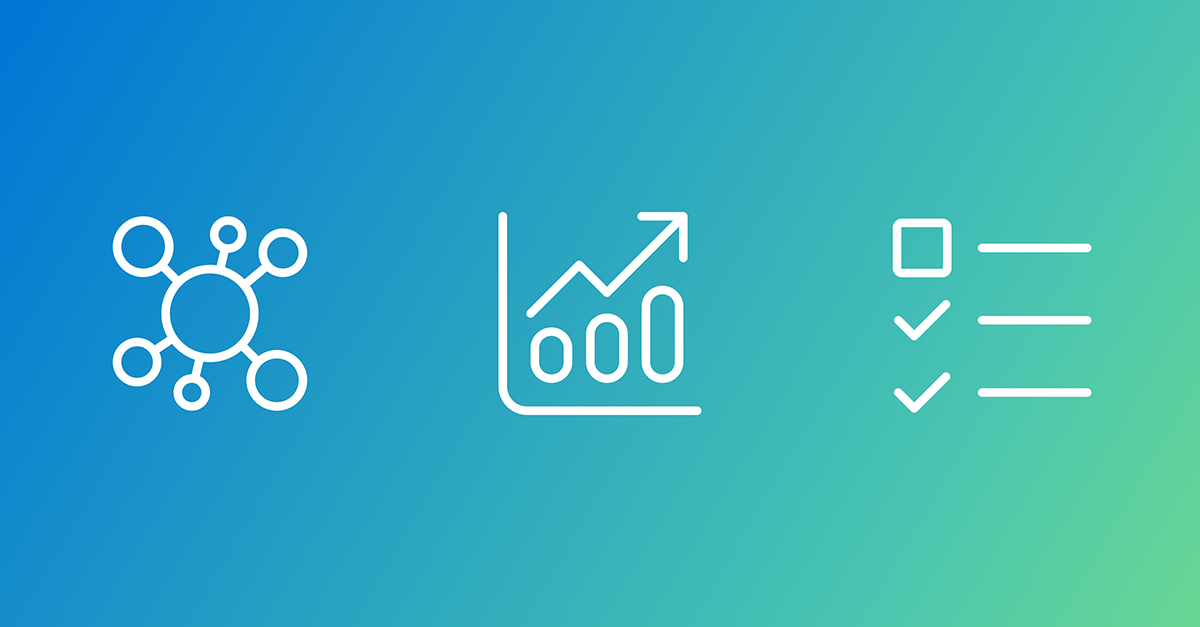A slight "Colin Powell" alert here..... but then again if you're complaing about the length of this article, chances are your job is gonna be replaced by an AI anyway! You already sensing the imminent unemployment coming for you.

 Sorry, Gen Z: AI is coming for safe and secure teaching jobs, as well as grad roles.
Sorry, Gen Z: AI is coming for safe and secure teaching jobs, as well as grad roles.
A new report from Microsoft researchers studying the occupational implications of generative AI offers some clarity.
Translators, historians, and writers are among the roles with the highest AI applicability score, meaning the job’s tasks are most closely aligned with AI’s current abilities, according to the report released this month that ranked professions. Customer service and sales representatives—which make up about 5 million jobs in the U.S.—will also have to compete with AI.
Overall, the jobs most exposed are ones that involve knowledge work—like people doing computer, math, or administrative work in an office, the researchers wrote. Sales jobs are also high on the list, since they often involve sharing and explaining information.
While Microsoft said high applicability doesn’t automatically mean those jobs will necessarily be replaced by AI, the list of roles quickly went viral—with professionals deeming them “most at risk.” It comes as companies like IBM have been freezing thousands of would-be new roles that it expects AI will take over in the next 5 years, and graduates in the U.K. are facing the worst job market since 2018 as employers pause hiring and use AI to cut costs, says Indeed.
Of course, there are some jobs that are unlikely to be touched by AI: Dredge operators; bridge and lock tenders; and water treatment plant and system operators are among the jobs with virtually no generative AI exposure, thanks in part to their hands-on equipment requirements.
Still, business leaders like Nvidia CEO Jensen Huang have said that every job will be touched by AI in some way, and so it’s best to embrace it.
“Every job will be affected, and immediately. It is unquestionable,” Huang said at the Milken Institute’s Global Conference in May. “You’re not going to lose your job to an AI, but you’re going to lose your job to someone who uses AI.”
“In terms of education requirements, we find higher AI applicability for occupations requiring a Bachelor’s degree than occupations with lower requirements,” wrote the researchers, who studied 200,000 real-world conversations of Copilot users and cross-compared the AI’s performance with occupational data.
On the flip side, there are some career paths with low AI exposure, that are growing in demand. The healthcare sector, in particular, is an area that is experiencing this heavily. The home health and personal care aid industry is expected to create the greatest number of new jobs over the next decade, according to the U.S. Bureau of Labor.
At the same time, the researchers recognized that even their findings don’t capture the full scope of the AI revolution—and there could be further automation caused by more than just generative technology: “Our measurement is purely about LLMs: other applications of AI could certainly affect occupations involving operating and monitoring machinery, such as truck driving.”
Kiran Tomlinson, a senior Microsoft researcher, tells Fortune the study focused on highlighting where AI might change how work is done, not take away or replace jobs.
“Our research shows that AI supports many tasks, particularly those involving research, writing, and communication, but does not indicate it can fully perform any single occupation. As AI adoption accelerates, it’s important that we continue to study and better understand its societal and economic impact,” Tomlinson says.
The sector was the fastest-growing industry among recent U.K. graduates last year, and it was similarly a top career choice for American graduates. And while the profession can provide further work-life balance and decent benefits, the ability for AI to do the work may cause further headache. The report singles out farm and home management educators—as well as postsecondary economics, business, and library science teachers—as roles with relatively high AI applicability.
While it’s unlikely that schools will roll out AI teachers en masse, the report’s findings underscore how quickly the technology could reshape the education profession—and many others.
The top 10 least affected occupations by generative AI:

 fortune.com
fortune.com


- Microsoft’s list of 40 jobs that have high crossover with AI is going viral—and professionals are warning that it highlights the careers “most at risk,” with historians, translators, and sales reps high on the list. While Microsoft says high applicability doesn’t automatically mean those roles will be killed by AI, employers have been putting a pause on hiring and cutting roles to make way for enhanced productivity.
A new report from Microsoft researchers studying the occupational implications of generative AI offers some clarity.
Translators, historians, and writers are among the roles with the highest AI applicability score, meaning the job’s tasks are most closely aligned with AI’s current abilities, according to the report released this month that ranked professions. Customer service and sales representatives—which make up about 5 million jobs in the U.S.—will also have to compete with AI.
Overall, the jobs most exposed are ones that involve knowledge work—like people doing computer, math, or administrative work in an office, the researchers wrote. Sales jobs are also high on the list, since they often involve sharing and explaining information.
While Microsoft said high applicability doesn’t automatically mean those jobs will necessarily be replaced by AI, the list of roles quickly went viral—with professionals deeming them “most at risk.” It comes as companies like IBM have been freezing thousands of would-be new roles that it expects AI will take over in the next 5 years, and graduates in the U.K. are facing the worst job market since 2018 as employers pause hiring and use AI to cut costs, says Indeed.
Of course, there are some jobs that are unlikely to be touched by AI: Dredge operators; bridge and lock tenders; and water treatment plant and system operators are among the jobs with virtually no generative AI exposure, thanks in part to their hands-on equipment requirements.
Still, business leaders like Nvidia CEO Jensen Huang have said that every job will be touched by AI in some way, and so it’s best to embrace it.
“Every job will be affected, and immediately. It is unquestionable,” Huang said at the Milken Institute’s Global Conference in May. “You’re not going to lose your job to an AI, but you’re going to lose your job to someone who uses AI.”
A degree won’t save you from AI’s jobs revolution
Many of the jobs with high chances of getting upended by AI soon, like political scientists, journalists, and management analysts, are all ones that typically require a four-year degree to land a job. And as the researchers point out, having a degree—which was once considered a surefire path to career advancement—is no longer a safeguard against the changing tides.“In terms of education requirements, we find higher AI applicability for occupations requiring a Bachelor’s degree than occupations with lower requirements,” wrote the researchers, who studied 200,000 real-world conversations of Copilot users and cross-compared the AI’s performance with occupational data.
On the flip side, there are some career paths with low AI exposure, that are growing in demand. The healthcare sector, in particular, is an area that is experiencing this heavily. The home health and personal care aid industry is expected to create the greatest number of new jobs over the next decade, according to the U.S. Bureau of Labor.
At the same time, the researchers recognized that even their findings don’t capture the full scope of the AI revolution—and there could be further automation caused by more than just generative technology: “Our measurement is purely about LLMs: other applications of AI could certainly affect occupations involving operating and monitoring machinery, such as truck driving.”
Kiran Tomlinson, a senior Microsoft researcher, tells Fortune the study focused on highlighting where AI might change how work is done, not take away or replace jobs.
“Our research shows that AI supports many tasks, particularly those involving research, writing, and communication, but does not indicate it can fully perform any single occupation. As AI adoption accelerates, it’s important that we continue to study and better understand its societal and economic impact,” Tomlinson says.
Gen Z’s big bet on education might not be all glam
After seeing the rollercoaster of layoffs across the tech industry over the past few years, many Gen Zers have turned to seemingly steadier fields like education.The sector was the fastest-growing industry among recent U.K. graduates last year, and it was similarly a top career choice for American graduates. And while the profession can provide further work-life balance and decent benefits, the ability for AI to do the work may cause further headache. The report singles out farm and home management educators—as well as postsecondary economics, business, and library science teachers—as roles with relatively high AI applicability.
While it’s unlikely that schools will roll out AI teachers en masse, the report’s findings underscore how quickly the technology could reshape the education profession—and many others.
The top 10 least affected occupations by generative AI:
- Dredge Operators
- Bridge and Lock Tenders
- Water Treatment Plant and System Operators
- Foundry Mold and Coremakers
- Rail-Track Laying and Maintenance Equipment Operators
- Pile Driver Operators
- Floor Sanders and Finishers
- Orderlies
- Motorboat Operators
- Logging Equipment Operators
- Interpreters and Translators
- Historians
- Passenger Attendants
- Sales Representatives of Services
- Writers and Authors
- Customer Service Representatives
- CNC Tool Programmers
- Telephone Operators
- Ticket Agents and Travel Clerks
- Broadcast Announcers and Radio DJs
- Brokerage Clerks
- Farm and Home Management Educators
- Telemarketers
- Concierges
- Political Scientists
- News Analysts, Reporters, Journalists
- Mathematicians
- Technical Writers
- Proofreaders and Copy Markers
- Hosts and Hostesses
- Editors
- Business Teachers, Postsecondary
- Public Relations Specialists
- Demonstrators and Product Promoters
- Advertising Sales Agents
- New Accounts Clerks
- Statistical Assistants
- Counter and Rental Clerks
- Data Scientists
- Personal Financial Advisors
- Archivists
- Economics Teachers, Postsecondary
- Web Developers
- Management Analysts
- Geographers
- Models
- Market Research Analysts
- Public Safety Telecommunicators
- Switchboard Operators
- Library Science Teachers, Postsecondary

Microsoft researchers have revealed the 40 jobs most exposed to AI—and even teachers make the list | Fortune
Sorry, Gen Z: AI is coming for safe and secure teaching jobs, as well as grad roles.
Last edited:


